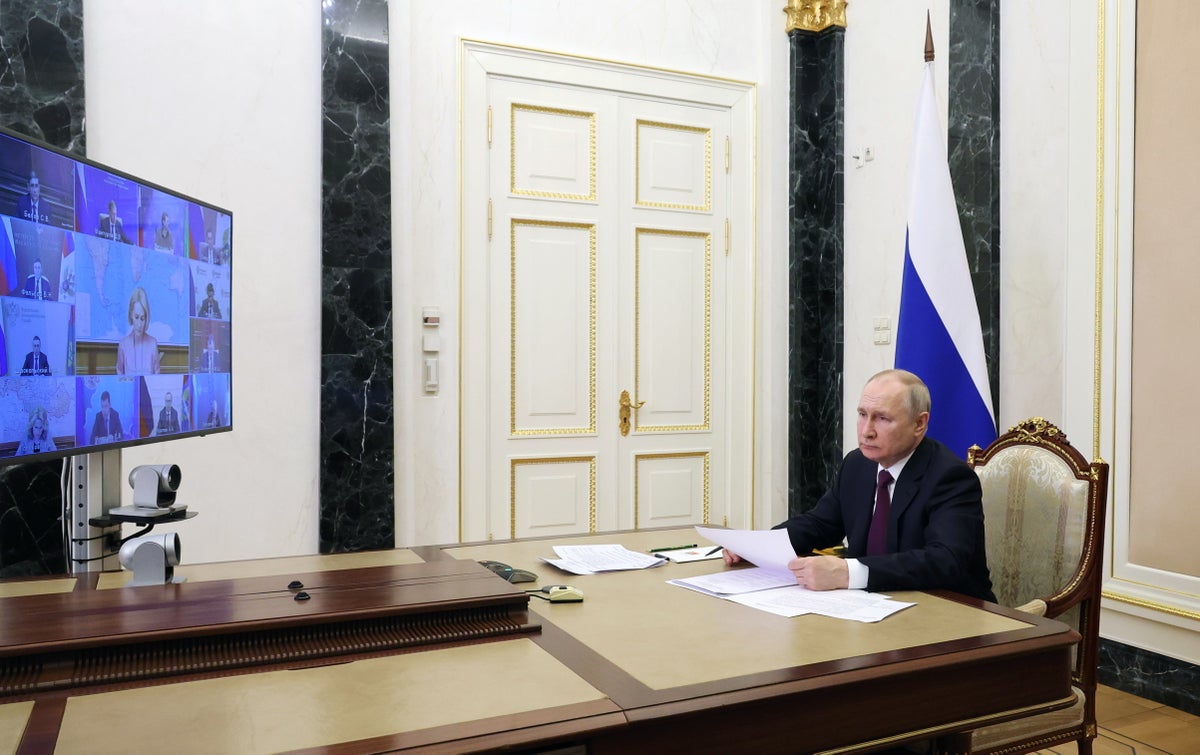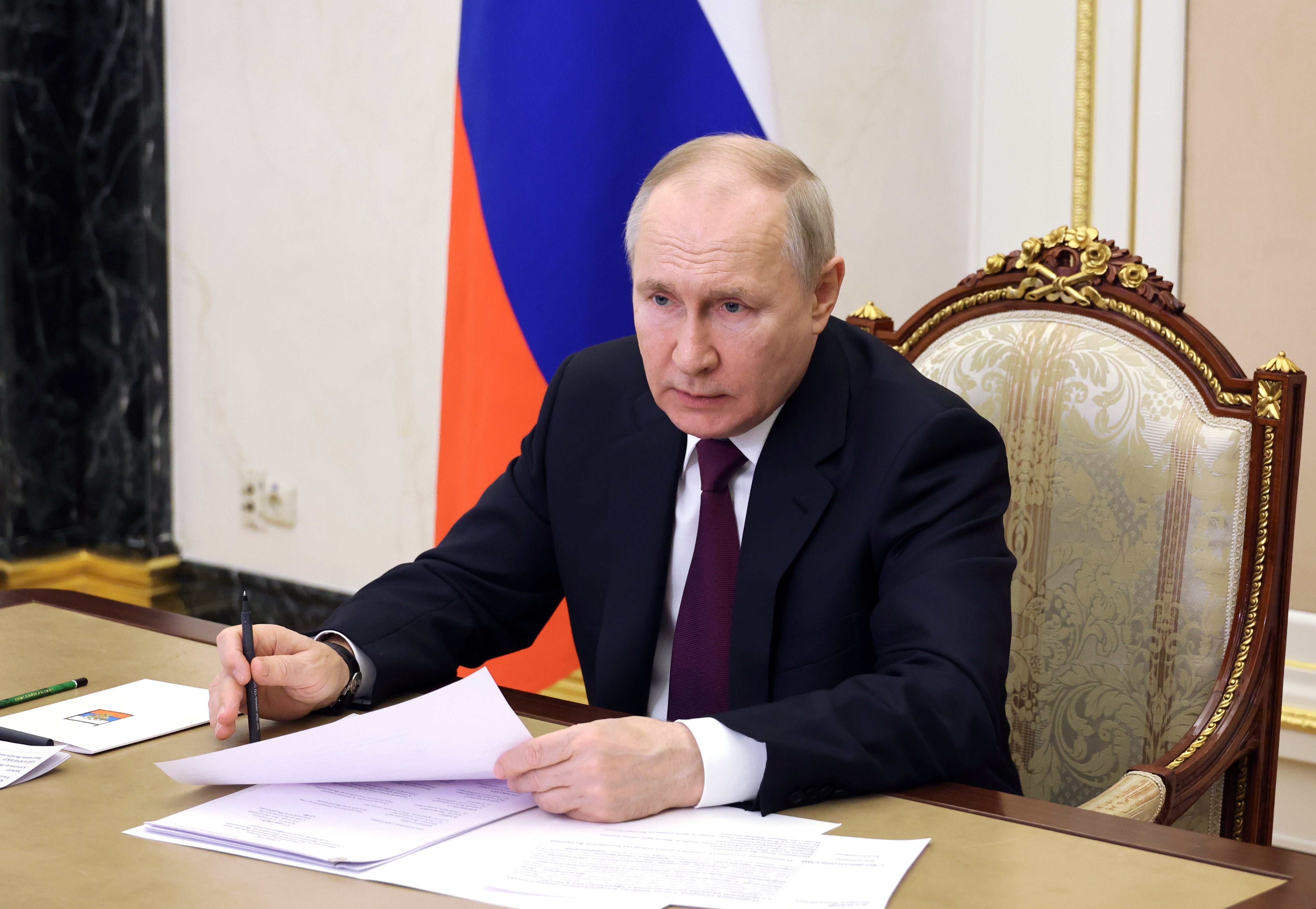
Vladimir Putin has shot down concerns of his own finance minister who acknowledged “a problem” with Russia’s energy revenues, underscoring the damage done by Western sanctions to its economy.
In a televised meeting chaired by President Putin through a video link, Anton Siluanov said on Wednesday that Russia’s revenues from oil and gas have taken a hit, blaming deep discounts offered to countries following the Ukraine invasion.
“Russia’s non-energy revenues are on track for growth as planned, with the potential for a small surplus by year-end, but there is a problem with energy revenues,” said Mr Siluanov.
Appearing to downplay his finance minister’s concerns, Mr Putin said the situation is “absolutely stable” and added that the lower revenues are due to “voluntary cuts” in oil production announced in coordination with Opec+ partners.
“All our actions, including those related to voluntary production cuts, are connected with the need to support a certain price environment on global markets in contact with our partners in Opec+,” Mr Putin responded.
“In general, the situation is absolutely stable.”
Mr Siluanov said oil revenues plummeted by more than 50 per cent in the first quarter of this year, causing a trade deficit.
“As of now... we have fulfilled about 30 per cent of annual income. And we have fulfilled 39 per cent of expenditure for the year,” he said during the meeting.

“Therefore, we still have a temporary imbalance, which should be evened out as budget execution progresses.”
Russia has been forced to sell its crude oil at heavy discounts after Western sanctions to cut its revenues came into force, followed by G7-led price caps on Russian energy in December and February.
Despite the sanctions, Russia has managed to sell its oil at over pre-war levels in the first quarter of this year, with Asian allies India and China contributing to almost 90 per cent of its flows, according to Kpler.
Its energy revenue has been slashed to Rbs 2.2 trillion (£21.9bn) in the first four months of 2023, according to data from the finance ministry.
There was a trade deficit of Rbs 3.4 trillion (£33.9bn) so far this year as the spending rose because of a fall in energy revenues.
In April, Russia pledged to further cut its crude production by 500,000 barrels a day as Opec and its allies announced an output cut to support the market as economic projections worsened.
The Kremlin initially said the move was in retaliation to Western sanctions, including the G7 price cap.







